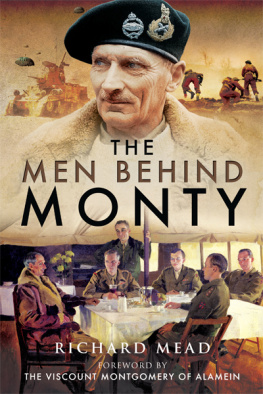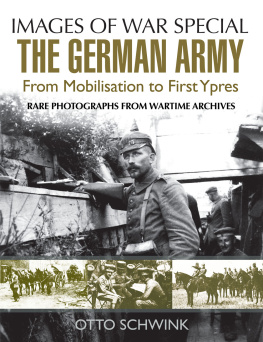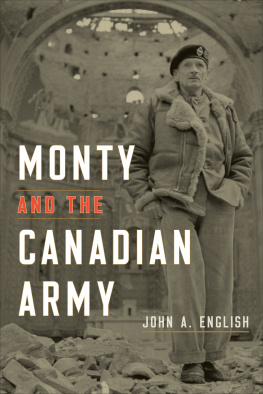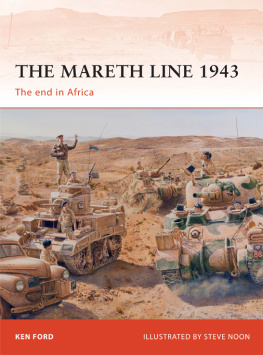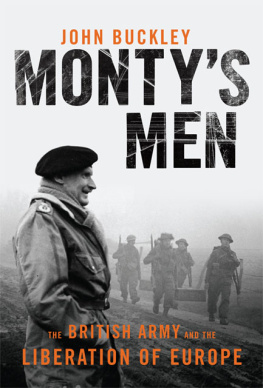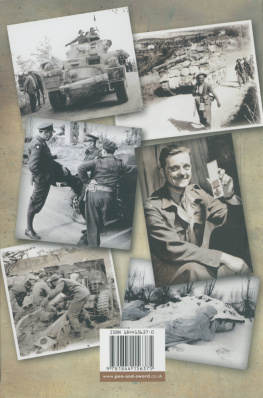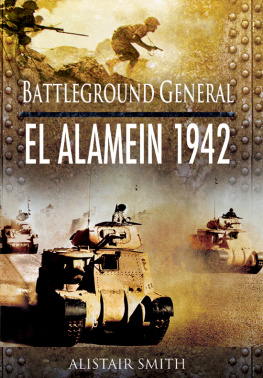
First published in Great Britain in 2015 by
Pen & Sword Military
an imprint of
Pen & Sword Books Ltd
47 Church Street
Barnsley
South Yorkshire
S70 2AS
Copyright Richard Mead 2015
ISBN 978 1 47382 716 5
eISBN 9781473857520
The right of Richard Mead to be identified as the Author of this Work has been asserted by him in accordance with the Copyright, Designs and Patents Act 1988.
A CIP catalogue record for this book is available from the British Library
All rights reserved. No part of this book may be reproduced or transmitted in any form or by any means, electronic or mechanical including photocopying, recording or by any information storage and retrieval system, without permission from the Publisher in writing.
Pen & Sword Books Ltd incorporates the imprints of Pen & Sword Archaeology, Atlas, Aviation, Battleground, Discovery, Family History, History, Maritime, Military, Naval, Politics, Railways, Select, Transport, True Crime, and Fiction, Frontline Books, Leo Cooper, Praetorian Press, Seaforth Publishing and Wharncliffe.
For a complete list of Pen & Sword titles please contact
PEN & SWORD BOOKS LIMITED
47 Church Street, Barnsley, South Yorkshire, S70 2AS, England
E-mail: enquiries@pen-and-sword.co.uk
Website: www.pen-and-sword.co.uk
Contents
List of Maps
Foreword
by The Viscount Montgomery of Alamein CMG CBE
R ichard Mead and I first met when he was researching his book on my father-in-law, Boy Browning. The book, General Boy , turned out to be an immensely readable and sympathetic account of a difficult life.
When he subsequently mentioned that he was proposing to write about my father, I had some reservations that there was nothing new that could be said. However, he has proved me quite wrong and written a fascinating story of the many talented officers who served on Montys staff at various times. Although Monty was very self-centred, he had an extraordinary talent for choosing subordinates and commanding their absolute loyalty. Richard Mead brings all this out in flowing prose which illustrates how these young men in their different ways contributed to the successful outcome of the war.
He has also covered the difficult relationship Monty had with Eisenhower. I have always felt that this stemmed from the latters lack of battlefield experience. Whereas Monty had commanded every unit and formation from an infantry unit to an army group, Eisenhower had risen through the Washington staff with no understanding of actual warfare. Reconciliation took place when Monty became the Military Deputy to Eisenhower as Supreme Commander of NATO, and was further consolidated when Ike became President and invited Monty to stay at the White House.
Introduction
E arly on the morning of 12 August 1942 Lieutenant General Bernard Montgomery arrived in Cairo by plane from England, in response to an urgent summons. The previous nine days had been momentous ones in terms of Great Britains conduct of the Second World War. Both the Prime Minister and the Chief of the Imperial General Staff had been in the Egyptian capital with the express purpose of finding a solution to what the former considered to be serious deficiencies in the command of the British and Empire forces in the Western Desert. A calamitous defeat in June and a retreat to a line some 70 miles west of Alexandria, the furthest the Axis armies had advanced since the beginning of the war, had created a huge threat to Britains strategic position in the Middle East and even, by extension, to India.
Although the enemy army had been halted, there was little evidence in Churchills opinion of any plans to defeat it comprehensively. His remedy was change at the top. General Sir Claude Auchinleck was replaced as C-in-C Middle East by General Sir Harold Alexander, who arrived in Cairo only three days before Montgomery. Auchinlecks Chief of Staff and his Deputy were also dismissed. A more difficult question arose over the selection of a new leader for the Eighth Army, which Auchinleck himself had been commanding since the end of June. Alan Brooke, the CIGS, strongly favoured Montgomery, but Churchill insisted on the appointment of Lieutenant General Strafer Gott, a corps commander in the Army with considerable experience in the desert. Against his better judgement Brooke agreed, but on 7 August Gott was killed when the transport plane in which he was returning to Cairo was shot down by German fighters. Montgomery, at this time by no means a favourite of Churchills, was duly summoned.
By the time Montgomery arrived, Churchill and Brooke had moved on to a meeting with Stalin in Moscow, although they were to reappear in Egypt five days later. Montgomery was thus briefed initially by Auchinleck and then by Alexander before leaving for his first visit to Eighth Army early the next morning. By a happy chance the Brigadier General Staff at Army HQ was a friend of many years standing, Freddie de Guingand, who had himself been in the post for less than three weeks. Montgomery signalled de Guingand to meet him at the crossroads outside Alexandria and accompany him to Eighth Armys Advanced HQ, situated not far behind the front line. By the time they arrived he was well briefed on the situation, which he found inherently unsatisfactory, so much so that he took immediate command of the Army, notwithstanding an agreement with Auchinleck that this should not happen for another two days. That evening he addressed Eighth Army staff in terms that all of them would remember for the rest of their lives.
Other than de Guingand and Brian Robertson, the Deputy Adjutant and Quartermaster General, the senior members of the staff were all new to Montgomery. The reputation which preceded him was of a man who had strong views on the capabilities of individual officers. He divided them into two categories, absolutely first class and quite useless, and was both ruthless in weeding out those in the latter category and highly skilled in engineering their replacement by others in whom he reposed confidence. It is extraordinary, therefore, that a significant number of the key staff officers not only survived the first few weeks but continued to work for Montgomery throughout his time at Eighth Army and then followed him to 21st Army Group on his appointment as its C-in-C. On VE Day many of the senior officers at Army Group HQ could remember vividly that first electrifying address outside the Mess Tent on the Ruweisat Ridge.
Military histories and biographies seldom dwell at any length on the staff, preferring to focus attention on those either determining strategy or doing the actual fighting. Yet in twentieth and twenty-first century warfare, with all its complexities, excellent staff work at all levels has been fundamental to success, and was never more so than in the Second World War. The armies and army groups in the Great War may have been as large as or even larger than those in the subsequent conflict, but they were all too often static. The Second World War, by contrast, saw enormous bodies of men move great distances, often on long lines of communication, in successions of multifaceted operations involving not only ground, but also naval and air forces. Putting these armies into the field, controlling their actions and then sustaining them over long periods of time required organizational skills of a high order and on a scale hitherto unknown.
The staff came away from the Great War with a poor reputation. The image of red-tabbed officers living comfortably in French chateaux far behind the front is an enduring one. At higher HQs this was often the case, and Montgomery himself was struck by the lack of connection between their staff and those doing the fighting, a state of affairs which strongly influenced his own military philosophy. At divisional and brigade HQs this was far from the truth, but the standard of staff work was inevitably affected by the decision to close the staff colleges for the duration of the War, in retrospect a great mistake. By the start of the Second World War, the situation had changed. Almost every general officer who would hold high command or a senior staff position had been through the two-year course at one of the two staff colleges at Camberley and Quetta, whilst many of the best had also taught there; and although some of them might have been disinclined to pursue a career in staff work, they had a very good idea of what it involved. Just as importantly, not only did the two staff colleges remain open for the duration of the war, but they were joined by a third, at Haifa in Palestine. The courses were cut down from two years to less than six months and focused exclusively on preparing officers for staff work at General Staff Officer Grade 2 and Deputy Assistant Quartermaster General or Adjutant General level, appointments holding the rank of major. The supply of trained officers was thus maintained and, as many of them had also seen active service, they came with added credibility and attracted less resentment from their brother officers at the front than their Great War forebears.

